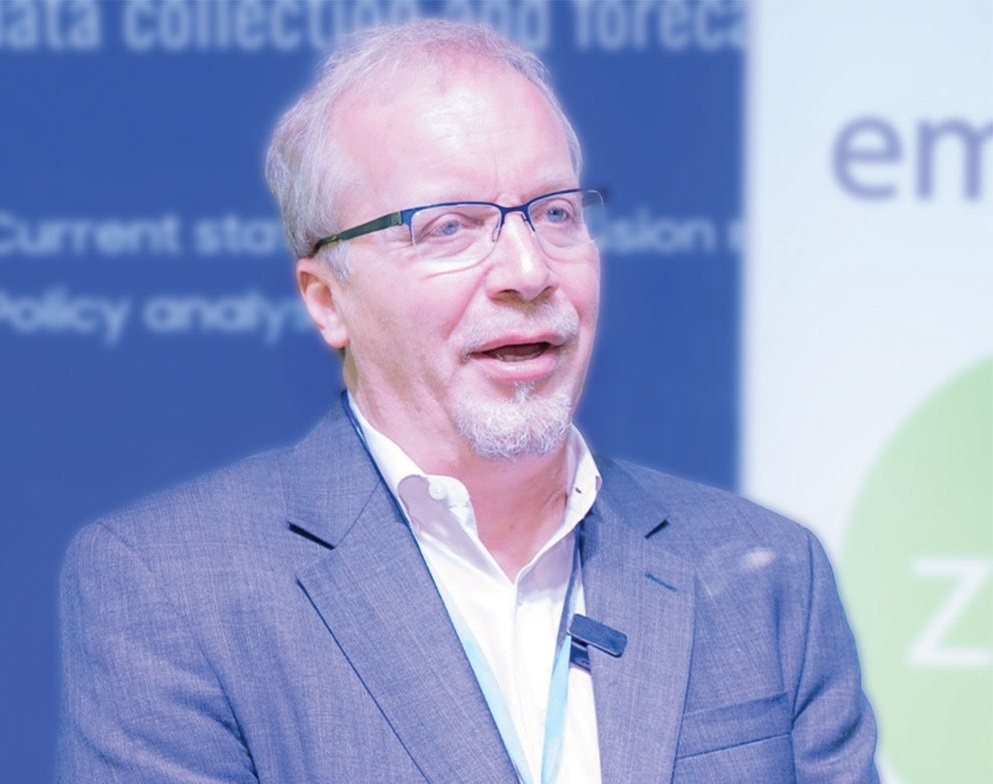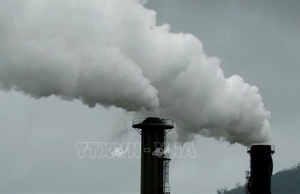The correct path to a low-carbon market for Vietnam
Vietnam is developing a credit carbon market to achieve net-zero by 2050. What are your recommendations for Vietnam to successfully achieve that this?
 |
| Marc Stuart |
It is a strong first step, depending on how well it is put together. There is obviously an international carbon market and requirement for a domestic one, but for Vietnam’s ambitions to meet the 2050 goal, a domestic market creating a price on carbon for local entities makes a lot of sense.
International carbon markets, sometimes called voluntary carbon markets, open real opportunities for capital to come to Vietnam to help it with the green transition. So creating a good policy environment for international entities both to invest in Vietnam’s green transition will be very helpful.
What are the challenges facing Vietnam, and what can it learn from elsewhere?
Not every country gets it right from the start. It takes time to create the public policy, and it cannot be introduced overnight. Sometimes the only way to figure it out is to learn by doing, so creating a pilot system, as will occur in 2025 here, will be very helpful.
There will always need to be tweaks in terms of regulations, as the market may not work for one particular sector or is not achieving the environmental results that you want. But the most important thing is to get a system in place, as long as it allows for adaptation over time as you learn about the specific needs in the country.
There is a whole ecosystem of companies and government agencies that can create an attractive business environment for these goals. It’s really just down to having a policy commitment at the highest level that filters down into provinces and cities. But decarbonisation is not just about compliance, it’s about creating a competitive advantage over time.
Developing countries have made strong commitments. Colombia and South Africa have done quite well. Thailand has carried out some of the earliest government-to-government transactions, which have been very attractive but are relatively small.
There is an emissions trading system in South Korea as well as in Japan. Singapore has an advanced carbon tax and the ability to use credits from places like Vietnam as ways to reduce the tax burden.
Europe has had an emissions trading system for nearly 20 years. At the beginning mistakes were made, but then they fixed them. California in the US has had an emissions trading system for nearly 15 years, and that always goes through slight evolutions.
The world is looking at nations like Vietnam, and there is a lot of support from other countries as well as institutions like the World Bank to help Vietnam get through this process.
How can cooperation with local partners and stakeholders like Saigontel help promote green development in Vietnam?
We work a lot with global corporates and major brands that think about their emissions from their production to their supply chains.
Industrial parks (IPs) are a key area where the more companies that can be lured in to manufacture, the more green we must make them. As Vietnam becomes more competitive, we want to make sure that new IPs have the lowest emissions profiles in the world and that they can be certified as being green IPs.
We have moved more of our production into IPs in Vietnam that have an 80-100 per cent reduction in emissions compared to conventional IPs, to make Vietnam a more competitive economy for entities that wish to show their green credentials.
Saigontel is also piloting a model of low-carbon IPs in Vietnam. This model is being applied in building a green production ecosystem and circular economy model. This is done through economical and efficient use of natural resources and energy based on science and technology and the application of digital tech, contributing to improving competitiveness and minimising impact on the environment.
The company has talked to a number of provinces about creating net-zero strategies, which doesn’t just involve IPs but covers agriculture, forestry, transport, and other areas.
We are still very early on this journey, but we expect more fruitful results to come.
 | Vietnam makes efforts to develop domestic carbon market In the context that about 70 countries and territories have applied carbon pricing instruments, experts held that Vietnam should also apply such tools, especially by developing the domestic carbon market, in order to support the realisation of the country’s greenhouse gas (GHG) emissions reduction target. |
 | Vietnam poised to become large-scale carbon credit market The Emissions Reduction Purchase Agreements (ERPAs) for 11 forests in the south central region and Central Highlands will lay the foundation for Vietnam's large-scale carbon credit market. |
What the stars mean:
★ Poor ★ ★ Promising ★★★ Good ★★★★ Very good ★★★★★ Exceptional
Related Contents
Latest News
More News
- Bac Ai Pumped Storage Hydropower Plant to enter peak construction phase (January 27, 2026 | 08:00)
- ASEAN could scale up sustainable aviation fuel by 2050 (January 24, 2026 | 10:19)
- 64,000 hectares of sea allocated for offshore wind surveys (January 22, 2026 | 20:23)
- EVN secures financing for Quang Trach II LNG power plant (January 17, 2026 | 15:55)
- PC1 teams up with DENZAI on regional wind projects (January 16, 2026 | 21:18)
- Innovation and ESG practices drive green transition in the digital era (January 16, 2026 | 16:51)
- Bac Ai hydropower works stay on track despite holiday period (January 16, 2026 | 16:19)
- Fugro extends MoU with PTSC G&S to support offshore wind growth (January 14, 2026 | 15:59)
- Pacifico Energy starts commercial operations at Sunpro Wind Farm in Mekong Delta (January 12, 2026 | 14:01)
- Honda launches electric two-wheeler, expands charging infrastructure (January 12, 2026 | 14:00)

 Tag:
Tag:


















 Mobile Version
Mobile Version